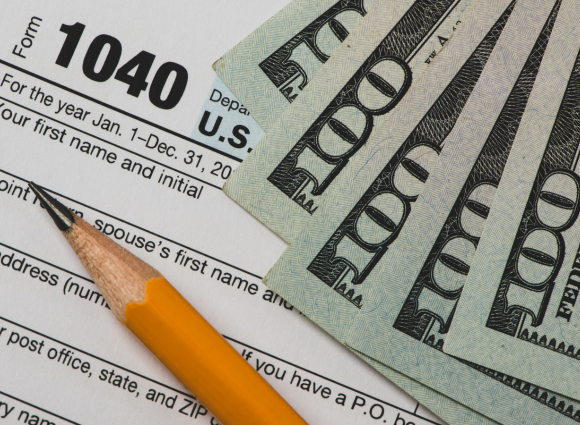
What are the Rules for Employee Business Travel?
Business travel has substantially decreased over the past couple of years due to the pandemic, but from time to time, employees still need to travel for work-related reasons. Maybe it’s driving between different employer-owned locations within a workday, or maybe it’s to attend a conference or trade show that includes an overnight stay. Regardless of the purpose, it’s important to know how employees are paid for these different activities.
Paying Business Travel Expenses
The first question to ask is whether the company reimburses travel expenses under an accountable plan. An accountable plan allows travel expenses to be excluded from the employee’s wages, meaning they’re not subject to withholding or reporting (i.e., the travel reimbursement doesn’t trigger a Form W-2). There are three requirements for an accountable plan:
- The expense must be work-related
- The employee must provide accurate documentation within a reasonable time
- Any excess reimbursements or advances must be returned to the employer within a reasonable time
Employees are responsible for maintaining good records, which means receipts, mileage documentation, and turning in a reimbursement request in a timely manner. The employer is then responsible for reimbursing the employee also in a timely fashion, generally within 30 days after the employee submits a reimbursement request.
The next question is whether the business travel is within the employee’s normal workday, or whether it requires an overnight stay. Rules for paying expenses and employee hourly wages differ for each of those scenarios.
Meals. If an employee is away from the workplace for the day and has lunch and/or dinner while on the road, that is not a reimbursable business expense because the employee is not staying overnight. However, if the meal is directly related to and necessary for the business, such as attending a business meeting that includes a meal, then it is reimbursable.
Overnight Travel Expenses. Reasonable business-related expenses for travel, lodging and meals can be paid to employees using a per diem rate or reimbursed for actual expenses.
Per diem is a flat rate under an accountable plan for business travel away from home. The General Services Administration (GSA) sets the federal per diem rate, which is $59 for meals and incidentals and $96 for lodging in 2022. Employers can also choose to use the IRS simplified per diem rates which set one rate for urban areas with a higher cost of living and a lower rate for areas with a lower cost. Per diems are not considered wages as long as employees follow the accountable plan rules above for documentation and returning any excess.
Note – business owners and sole proprietors can’t use per diem for lodging expenses and must maintain records of actual expenses instead.
Vehicle Usage. If an employee uses their personal vehicle for business travel, the employee can be reimbursed using the cents-per-mile method or using the actual cost incurred by the employee substantiated by receipts including date(s), mileage, and business purpose. Any reimbursement over the federal mileage rate (58.5 cents per mile in 2022) is taxable and reportable on Form W-2.
If the employee uses a company-owned vehicle for business travel, there are no tax consequences but the employee is required to maintain mileage records. For more information, refer to our blogs on this topic.
- The (Fringe) Benefits of Providing a Company Car
- 2022 Mileage Rates and Tax Rules for business Use of an Automobile
When is Travel Time Paid?
Employees must report – and the employer must pay – all hours the employee works. Employees who are subject to overtime (non-exempt employees) are paid overtime for working more than 40 hours in a week (and in some states, for working more than 8 hours in a workday). Exempt employees are not subject to overtime, so time spent traveling is not paid any differently than their normal salary.
Here are examples of how pay should be handled for different travel situations:
Travel During the Normal Work Day
- An employee’s normal commute between work and home is not work time. This is true even if the employee normally works at a different location each day, and if the employee goes to the workplace outside their normal work hours (to catch up on work over the weekend, for example).
- If an employee travels to different work locations throughout the normal workday, that travel time should be paid. This can include traveling from the employee’s normal workplace to other employer-owned locations, to visit customers, or other work-related travel. This includes traveling out of town and returning within the workday.
Business Travel Requiring an Overnight Stay
- If an employee is a passenger on an airplane, train, bus, boat, or automobile traveling outside normal working hours, that time is not considered work time. However, if the employee is working while a passenger, that time should be paid.
- If the employee is required to drive themselves or others, that time must be paid. If the employee volunteers to drive their own vehicle, the time outside normal work hours is not required to be paid.
- While out of town on overnight business travel, time spent working must be paid, but time spent in personal activities is not compensable. That means if an employee attends a conference from 8 a.m. to 6 p.m. and then goes out to eat with conference buddies, then back to the hotel to watch TV and sleep, only the 10 hours of work – attending the conference – is paid.
What About Spouses or Traveling Companions?
Any company-paid travel expenses on behalf of a spouse or non-employee traveling companion are considered income and reportable on the employee’s Form W-2 as a taxable fringe benefit. For instance, if you have a larger hotel room because of your spouse, only the cost of a single room is considered to be a reasonable business expense. If both parties travel on an airplane, only the employee’s ticket is a business expense.
Your State May Differ
State rules usually follow these federal rules, but be sure to check your state’s requirements to ensure you’re in compliance.
For More Information
Both IRS Publication 15-B, Employer’s Tax Guide to Fringe Benefits and Publication 463, Travel Gift, and Car Expenses cover the topic of business travel. Or contact your Mize relationship manager for assistance with your situation – we’re here to help!



